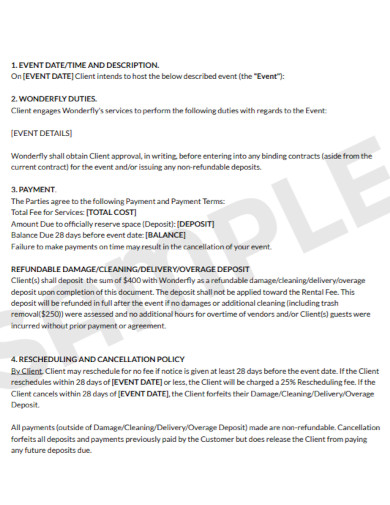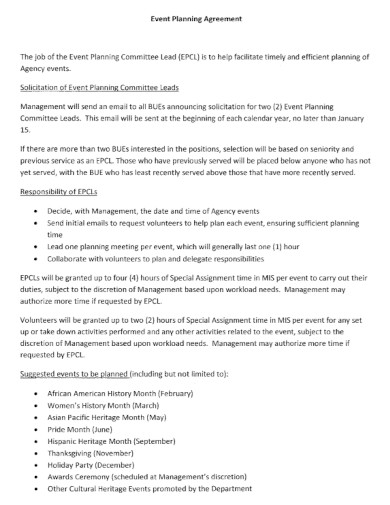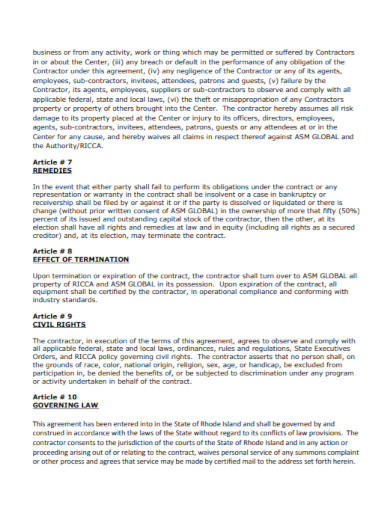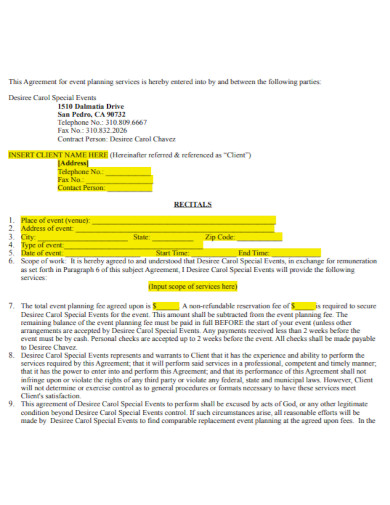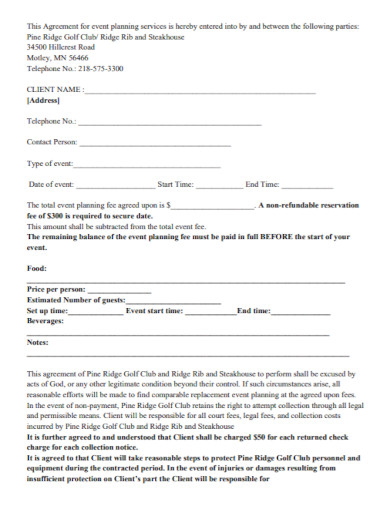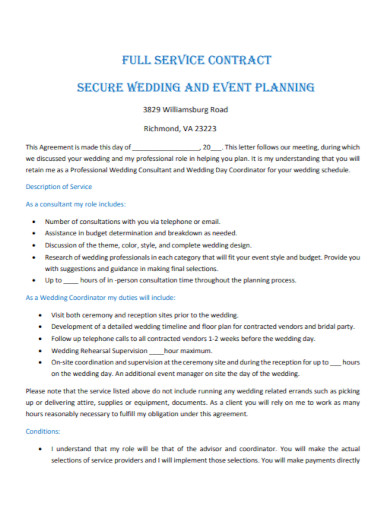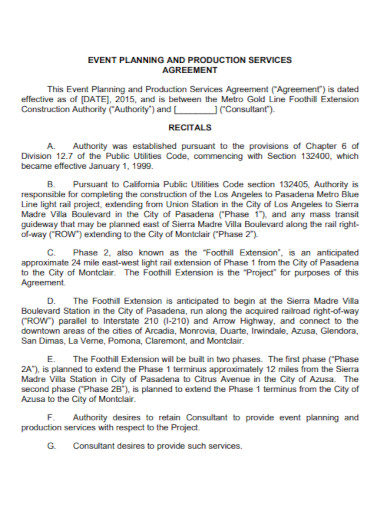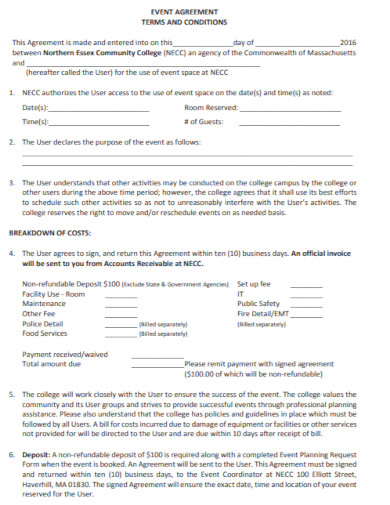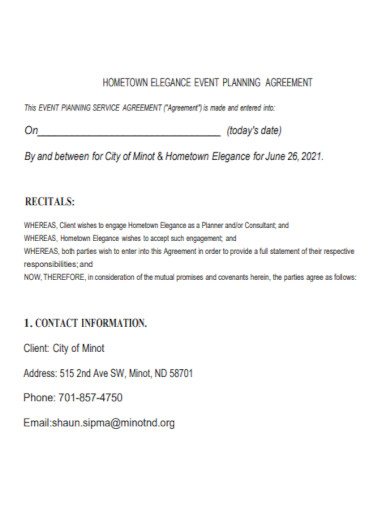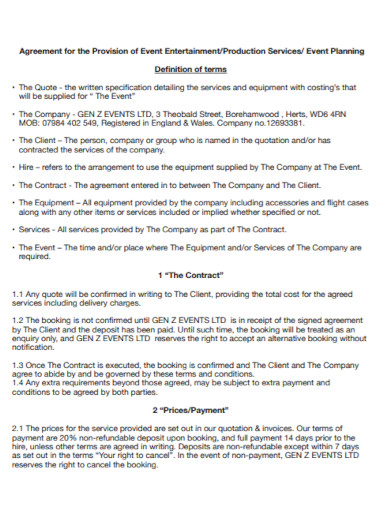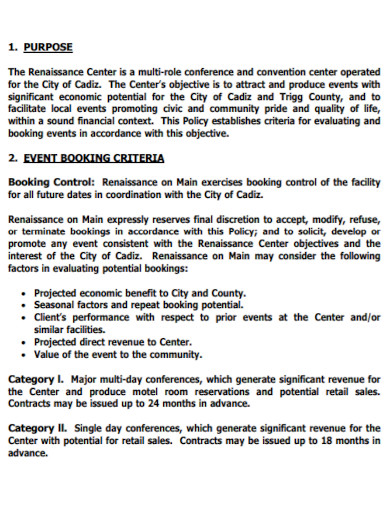10+ Event Planning Agreement Examples to Download
Event organizers have one thing planned when it comes to this kind of event. To plan out the best event for the client they had an agreement with. This would mean that they are going to be doing the best to their capabilities and to find a way to get everything set up as planned. Regardless of what event it may be. A wedding event, a college party, or even a family party. Planning on events is not as easy as it looks like. Of course we would not know how many times or how many problems have fallen on the event planning since the final result is a success. This is of course all done in a carefully thought out manner.
But before any of that magic happens, there is a lot of paperwork involved and needs to be done. A lot of carefully thought out planning and of course an agreement that can help keep both or all parties at the same appropriate level or the same page. This agreement is called an event planning agreement. This is of course between the event planners or the event coordinator and their team who agreed to take up the planning for their clients or tenants. With this in mind, here are your 10+ examples of the event planning agreement.
10+ Event Planning Agreement Examples
1. Event Planning Agreement Template
2. Job Event Planning Agreement
3. Event Planning Agreement in PDF
4. Special Events Planning Agreement
5. Event Planning Services Agreement
6. Wedding Events Planning Agreement
7. Event Planning and Production Services Agreement
8. College Event Planning Agreement
9. Home Town Event Planning Agreement
10. Agreement for the Provision of Event Planning
11. Event Planning License Agreement
What Is an Event Planning Agreement?
When you plan an event with an event planner, you would always go through the usual things like being asked questions before anything else. The event planning agreement is only used once both parties have agreed to a certain extent to what they expect from them and what is expected of the client. It is something that needs careful planning, discussions and carefully thought out before having to sign a legally binding document.
This is as to why, before you let your client sign, you must always have a good discussion with them to see if you have everything clear with them as well. An event planning agreement caters to the wants and needs of an event planner’s clients. The agreement caters to the terms and responsibilities of the event planner and that of their client. This means that the event planning agreement works both ways.
How to Write an Event Planning Agreement?
Where do you even begin when it comes to event planning agreements? Of course from a lot of general to custom made event planning agreements, they do have some things in common. To start off with what they may have in common, check out the ones written below.
1. Give a Short Introduction
For an event planning agreement, adding a short introduction means that you are explaining what the agreement is and who the agreement is done with. Basically just a short summary of saying that your company or event coordinating team has agreed to help plan an event with the client and their company or their family. This would of course depend on who your client is whether it is a private company, a public company or a personal type.
2. State the Purpose of the Agreement
Stating the purpose would mean why are you making an agreement with the client. The purpose falls under the short introduction but they are not the same. The purpose gives the explanation while the introduction simply guides the client into knowing what kind of agreement they are given.
3. Let the Client Know of Your Criteria
Each agreement differs, and so does your criteria. Your criteria is important here and should be stated or explained in the agreement. Your client must also have the knowledge of what your criteria for event planning is. At least give them the facts and avoid sugar coating it.
4. Define Your Terms
Your terms and conditions would also differ depending on the agreement. Not all agreements have the same definition of terms. What your terms may be should always be clear and concise. A vague term would only confuse the client and may lead to misunderstandings of the agreement.
5. Fill Out the Entire Agreement
Filling out the agreement for your client should be best left to you. It is not because you do not trust your client, but when it comes to legally binding documents or paperwork it is always best to let the person or the people who wrote the agreement be the one to fill it out as well. Once you have finished, let your client sign and give them a copy of their own agreement. Complete with the details and their signature.
FAQs
What is an event planning agreement?
An event planning agreement caters to planning events that the client discusses with the event coordinator. This event planning agreement is only used for this kind of business.
Why is the client not allowed to fill out the agreement?
In most cases, it is always the landlord, the owner or the event coordinator who writes the agreement is the one who fills it out. In case of any issues or mistakes, the person writing may be able to change it.
When is the agreement not legally binding?
The only time the agreement can be coined as null and void is when the agreement has already been achieved or if the client or the event coordinator refuses to do a deal or an agreement with the other party.
When it comes to writing an agreement, for what kind of business or reason, always make sure that you have all the correct details. Details in a legally binding document is necessary. As this helps avoid any issues from both parties. It also helps to get the details right in case of any issues or concerns, they are immediately addressed.


![10+ Event Planning Agreement Examples [ Wedding, College, Family ]](https://images.examples.com/wp-content/uploads/2022/01/10-Event-Planning-Agreement-Examples-Wedding-College-Family-.jpg)
